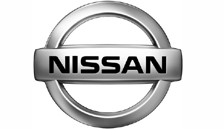Nissan is to sell used batteries from its electric cars to help reduce the cost of its latest zero-emission cars.
The move should give residual value security to fleets considering using Nissan’s Leaf electric car when it arrives here in 2011. Nissan will lease the Leaf’s batteries to buyers, thus reducing the initial purchase price.
With the possibility of now selling them, the monthly lease cost for the batteries should come down significantly, although Nissan was unable to confirm by how much.
“We can assume that the cost of leasing the batter will come down, of course,” said a Nissan spokesman. “But at this stage it is still under study.”
The carmaker has agreed a partnership with Sumitomo to “Reuse, Resell, Refabricate and Recycle” lithium-ion batteries that have come to the end of their useful lives in electric cars – currently after about four years.
The project is already underway in Japan and the US and is also expected to be rolled out in the UK although no date has yet been set.
The battery is the most expensive component needed to power all-electric, zero-emission cars. As such, without a business model that can absorb some of that additional battery cost and help reduce the showroom price, electric cars will be too expensive.
“This direct management of the battery’s entire value chain is important to ensure that our electric vehicle customers do not bear the cost of the battery,” said Hideaki Watanabe, head of Nissan’s Zero Emission Business Unit.
“Nissan is exploring several options including battery lease or credit model based on a monthly payment scheme. With this proposition, the total running cost, which equals the monthly battery payment plus the cost to charge the battery, is comparable to the cost to refuel a similar gasoline-powered car. Ultimately, this is a compelling economic proposition for a zero-emission car that meets all your driving needs.”
The “4R” business model is designed to capitalise on the supply of reusable lithium-ion batteries as more electric cars take to the roads.
Currently there is no existing supply of large-capacity reusable batteries, but by 2020 in Japan, the demand for “second-life” batteries is expected to reach the equivalent of 50,000 electric-cars per year.
“We recognise Nissan’s unique responsibility as the first company in the world to commit to delivering affordable zero-emission mobility,” said Nissan chief operating officer Toshiyuki Shiga.
Even after the end of their normal vehicle life, Nissan’s lithium-ion batteries will still retain 70 to 80% of residual capacity and so can be reused and resold.
Nissan said the news will enable “high residual values for electric-car batteries”.
Nissan is now exploring the 4R business model with its partner, Renault.
The second-life batteries are expected to be used as energy storage with photovoltaic solar panels for residential and industrial needs, as well as for back-up power supplies and load levelling for the electricity grid.













Login to comment
Comments
No comments have been made yet.